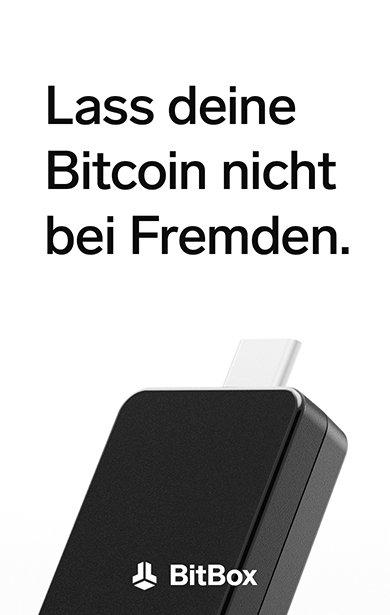10 beginner questions & answers
1. "Should I buy now or wait?"
This is probably the first question on the minds of all newcomers. Should I start now? Should I wait? Will the price fall again or is it more likely to rise?
Nobody knows the future!
The disappointing news is: No one can give you a reliable answer to this and anyone who says otherwise is either lying or suffering from hubris. There are countless self-proclaimed "(chart) analysts" on various platforms, whether on YouTube, Facebook or Instagram , who will tell you that the price will soon rise (or fall) for whatever reason. Even if it may seem well-founded to you, it's basically just "reading the crystal ball". The only reason these people keep predicting a big price move is to drive viewers/readers/etc. to action. Since many of the viewers most likely signed up to the trading platforms via their referral links, these people make money every time and therefore have an interest in people trading as much as possible. Be careful with such channels! You can recognize them on YouTube, for example, by the thumbnails they use for their videos. Big arrows, sometimes green, sometimes red, pointing in a different direction every day. If you see something like this, you should immediately recognize it as a warning symbol. Here are two examples. The opinion is changed five times in just two days 🙂 .
What we recommend:
As we said, no one can predict the future, so no one will be able to tell you the perfect time to buy. We are not investment advisors and therefore cannot recommend a precise strategy, but we believe that taking advantage of the so-called average cost effect is an interesting approach. If you do not make your entire investment at once, but rather buy a smaller portion at fixed intervals (e.g. once a week), you will never hit the best time, but also never the worst. This allows you to balance out price fluctuations and benefit from potentially rising prices in the long term. Take a look at the following "Blocktrainer 1×1" article: What does DCA mean?
You also need to be aware of your time horizon. An old stock market adage says "time in the market beats timing the market" and is also wonderfully applicable to the crypto market. If your time horizon is long enough, it only matters a little when you get in. So far, everyone who has held Bitcoin for at least three years is up. So think less about when you get in and more about how long you want to hold your investment.
2. "Will BTC soon be banned?"
The rumor that Bitcoin will be banned by governments in the near future is almost as old as the network itself. The fact is: Bitcoin cannot be banned. Bitcoin is a globally distributed network that can neither be banned nor shut down. It would be like "banning the internet". It is simply not possible.
However, it is possible that individual governments can and do regulate the access points to the network (wallets and exchanges). In order to prevent money laundering and terrorist financing, Bitcoin buyers must identify themselves to the relevant authorities and verify their identity. Especially in recent months, Bitcoin has been adopted by many institutional investors (e.g. Paypal, Microstrategy, etc.) and more and more industry is building on the network. With each passing day and each additional company, a ban by governments becomes more difficult to enforce. It is fairly certain that more regulations will come in the future, but a ban is extremely unlikely. However, as more regulations also mean more legal certainty for companies and investors, they could also have a positive impact on the price of Bitcoin.
3. "What other coins can you recommend?"
You should not base your investment on the recommendations of others. If you ask this question on Facebook, Twitter or in Telegram groups, you will receive countless different answers, as everyone will recommend exactly the coins that they themselves have bought (usually only on recommendation). There is a lot of misinformation circulating and most projects thrive on hope and the ignorance of investors.
An important credo in the Bitcoin and crypto community is: "Do your own research!". Don't rely on the recommendations of others, as they usually haven't done any real research themselves and have no idea why the project should have a future.
We recommend: Focus on Bitcoin to begin with and try to understand why Bitcoin has value, what problem Bitcoin solves and how it works. Once you have understood this, you can also assess other coins and projects according to their usefulness and are not dependent on recommendations from others.
4. "Is project XY a scam?"
The question "Is project XY a scam?" is also heard or read very often. And the answer is usually: "Yes, it's a scam!".
If a project promises very high returns or is based on the fact that you have to recruit other people in order to get more returns yourself (multi-level marketing), it is most likely a scam.
You should also stay away from "cloud mining", "server mining" or similar. Here, too, 99% of projects are simply scams.
If in doubt, it is better to ask before investing (e.g. in the Blocktrainer Telegram group).
Simple and German support
For beginners who value a simple user interface and German-language support, we recommend the Swiss provider Relai. Click here for our test and buying guide.
If you would like to start storing your Bitcoin yourself with a hardware wallet, we can recommend the Coinfinity stacking service. Here you can make a transfer to the service provider after the registration process and receive Bitcoin directly to your own wallet.
Another recommended stacking service is 21bitcoin. Here you can have your Bitcoin stored by the provider until you feel ready to become your own bank.
6. "Which wallet should I use?"
In the long term, our recommendation is always a hardware wallet. These are the most secure way to store your coins in a protected yet user-friendly way.
However, you should first familiarize yourself with how wallets work in general and what private and public keys are.
Once you have understood the principles, we recommend buying a hardware wallet. Blocktrainer.de recommends the Swiss product "BitBox02". This is considered to be particularly secure and has a very simple user interface.
7. "My wallet gives me 24 words and asks me which address type I should use. What should I do?"
You should make a note of the 24 words that your wallet gives you and keep them safe (even from the eyes of third parties!). These 24 words are your backup and guarantee you access to your bitcoins, even if the wallet provider goes bankrupt. The procedure with the 24 words (sometimes only 12 words) is standardized, which is why you are independent of the manufacturers/providers.
Some wallets ask you which address type you would like to use when you first set them up. You can find the differences and advantages of the individual types in one of our "Blocktrainer 1×1" articles.
8. "Is it worth mining Bitcoins?"
Basically: Yes. Theminingsystem is designed in such a way that it is always profitable for someone. The problem is that Bitcoin mining works by causing the miners costs for which they are subsequently compensated with newly distributed Bitcoins. Miners who can operate the process at comparatively low cost, i.e. who can obtain energy cheaply, are therefore particularly profitable.
The high electricity prices in Germany and Central Europe mean that it is usually not profitable to mine here. So if you don't happen to get (almost) free Storm in large quantities, the answer is: No, it's not worth it.
As already mentioned above, you should also stay away from so-called "cloud mining" services.
DISCLAIMER: We are not tax advisors and are not permitted to give advice or make specific statements on this subject.
9. "Do I actually have to pay taxes on cryptocurrencies?"
Yes, as soon as you make profits with Bitcoin or other cryptocurrencies, you must also pay tax on them unless you have held the coins sold for at least one year. It is best to speak to a tax advisor about this. For an initial overview, we also recommend taking a look at our "Crypto and taxes" section.
10. "Where can I get the best information?"
Of course at www.blocktrainer.de 😉
Unfortunately, there are hardly any good portals, especially in the German-speaking world, that we can really recommend unconditionally.
Especially in the area of "daily news", many news portals make a mountain out of a molehill in order to generate clicks. We urge caution here, as false reports have been published time and again in the past.
Channels such as our Blocktrainer Telegram group and the associated newsfeed are actually the best way to keep up to date with current events, as the information is filtered directly and accompanied by comments from experienced Bitcoiners. We can also recommend the newsfeed from our partner "Bitcoin2Go" for up-to-date information.
As far as general information on getting started in the world of Bitcoin and Co. is concerned, we recommend the videos on our YouTube channel as well as topic-specific books and articles, as these provide the most information.
Good books to start with are "Understanding Bitcoin" by Jonas Hofmeister and "Discovering Bitcoin" by Yan Pritzker.
If you are an auditory learner rather than a visual one, you should definitely listen to various podcasts on the topic of Bitcoin.
In addition to our own podcast, we recommend the following to get you started:






